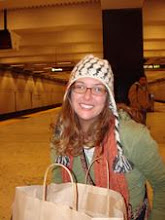My work with Inclusive education has taken me to two buzzing areas of Madang this week. To Alexishafen, where an industrial marine zone is underway and to the Ramu Valley where nickel is mined and other resources are exported from the Country.
The first part of the week I was in Alexishafen to promote early childhood education. I helped facilitate a training targeting community leaders from remote villages throughout Madang. These leaders form the committee that governs the Kindergarten schools in their villages. These men, some of whom never had the opportunity themselves to learn to read or write, have taken a step forward to ensure the children of their communities have the educational opportunities they never had.
Alexishafen is a Catholic Mission station about 25km north of Madang along the North Coast road. It is also the site of a highly controversial National Government initiative to create an industrial port. Many local landowners from the villages surrounding the area are against the Pacific Marine Industrial Zone (PMIZ). My knowledge on this topic is limited to what I read in the National papers and from conversations with others. I believe the intention is to create a ‘zone’ which will enable numerous Pacific and South East Asian Countries to fish PNG and Pacific waters, bring massive ships into Madang’s harbor destroying the reefs and the villagers fishing livelihoods, and build fishing canneries to process the fish and dump their toxins into PNG waters, and export the fish across the world. Basically, that is PMIZ in a nutshell. I am obviously biased, environmentally conscious, and sincerely concerned about the livelihoods of the People of PNG.
The second part of the week I joined John and Marshall from the VSO education team to visit two schools in the Ramu Valley. Traveling along the South Coast road following the nickel pipeline I noted significant changes from last year. There are increased amounts of Chinese workers, heavy machinery and hard physical labor of local community members. The Ramu Valley is abundantly rich in oil, gold, nickel, and particularly in land for the production of palm oil, cows, and sugar cane.
The two school visits were extremely fruitful. As always when I contact head teachers, they say they do not have children with disabilities in their schools. And as always they are surprised when I identify over 10% of their students with special needs. And even more surprised when substantial numbers of children from the surrounding communities who do not attend school are identified through child-to-child activities.
Garim, the first school I visited was quite large, with 23 teachers and over 1,000 grade 3-8 students. All classrooms are on stilts and inaccessible for children with difficulties in mobility. Unfortunately, brainstorming efforts did not result in the simple solution of building ramps when I asked how they could make the school more accessible. It was encouraging to discover two teachers had received previous training in special education; but dispiriting to see they are not practicing the skills they have been taught.
We stayed the night in the valley in a room attached to a local church, well John and Marshall did. The Pastor’s wife insisted I stay in their house, as it is improper for a young, unmarried woman to sleep any where near men. I joined her and her 5 children on a mat on the floor, while Marshall and John enjoyed sleeping on mattresses with sheets to protect them from the strong valley winds. I sat through a long-winded devotion after dinner. It was only when I heard the reading of John 3:16 in Pidgin that I realized the significance of the verse for Papua New Guineans, where children especially male children are so valuable to the family.
I thought of Richard’s story after seeing him earlier that afternoon. Richard lives in Madang town, but he is staying with an Aunt in the valley to seek sponsorship from the Ramu Nickel Mining Company in order to buy a new wheelchair for the upcoming PNG Games. Richard is a PNG gold medalist in weightlifting and track. When Richard told me his story of how he lost his legs, my heart skipped a beat. When receiving his vaccinations there was a mistake. The only option given to Richard’s family was amputation above the right knee and below the left knee. Richard said his father, in all his fury, chased the doctors and nurses around the hospital with a bush knife screaming “My only son, my only son!”
Before leaving the following morning, the Pastor’s wife gave me a bilum from her village in the Highlands made of kaskas fur. My bilum collection is growing fast!
We climbed back in the Cruiser to Walim Primary. Walim is a much smaller school than Gusap with only 10 teachers and 130 students grade 3-8. With a school of this size, I was able to do child-to-child activities in each class. Through role-playing, games, drama, and group discussions, the children were able to understand what it feels like to be excluded. They were able to talk about ways to include all children in school. And together we were able to identify over 60 children who are not attending school from their villages. In an effort to increase enrollment, the teachers went out into the villages to conduct awareness on children’s rights and the importance of education for the future of their communities.
In two resource-rich districts of Madang, we were able to identify numerous out-of-school children. Hopefully we can build a future full of educational opportunities for PNG children who will be able to manage these resources and the changes that come with them.
Sunday, November 1, 2009
Subscribe to:
Post Comments (Atom)












No comments:
Post a Comment